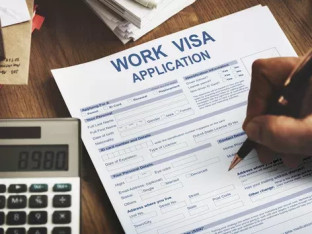US-based attorney specializing in immigration, corporate and contract law. Services include L1A, E2, O1 visa support, business formation, legal contracts, and corporate compliance. Legal assistance for investors, entrepreneurs, and immigrants.
Legal Case: Securing an L-1A Visa with Minimal Proof of Business Activity
Case Overview
A U.S. company with a branch in Russia sought to obtain an L-1A intra-company transfer visa for one of its key managers. The case presented significant challenges: the company was newly established, lacked basic documentation to demonstrate business viability, and had a reported loss of over $20,000. Despite these major obstacles, the attorney successfully achieved USCIS approval for the L-1A petition.
Legal aspects of the case included:
Preparing an L-1A petition with extremely limited supporting evidence.
Establishing business viability through alternative documentation.
Managing immigration and compliance risks.
Demonstrating the applicant’s executive and managerial capacity.
Developing strategic legal arguments to persuade USCIS in a complex scenario.
Key Legal Considerations
Petition Preparation and Evidence Justification
- Goal: To secure approval of the L-1A visa despite the absence of traditional proof of business operations.
- The company had no office lease agreement.
- No signed contracts with clients or vendors were available.
- The company reported a financial loss exceeding $20,000.
- Legal significance: The attorney successfully demonstrated that the business was operational and viable through alternative documents, strategic narrative explanations, and verified financial forecasts.
- Legal Strategy and Argumentation
- Goal: To convince USCIS of both the company’s operational reality and the executive nature of the applicant’s role.
- Use of indirect evidence such as financial statements, business correspondence, and expansion plans.
- Detailed explanation of the company’s business model and development stage.
- Clear justification of the applicant’s managerial and decision-making responsibilities.
- Legal value: The case illustrates that even with minimal documentation, success is achievable through comprehensive analysis, consistency, and well-structured argumentation.
- Risk Management and Preventive Measures
- Goal: To minimize the likelihood of denial due to insufficient evidence of business viability.
- Thorough risk assessment of potential USCIS concerns and weaknesses in the file.
- Proactive development of an RFE (Request for Evidence) response strategy before submission.
- Legal insight: Preventive preparation of explanatory arguments helped the attorney avoid an RFE request and led to a direct petition approval.
Frequently Asked Questions (FAQ)
Question
Is it possible to obtain an L-1A visa without a lease agreement or client contracts?
Answer
Yes, provided that alternative evidence is carefully prepared and the company’s growth stage is clearly explained in the petition.
Question
How can a company with financial losses prove its viability to USCIS?
Answer
By presenting a detailed business plan, evidence of active operations, and a logical justification of investment and growth stages typical for new ventures.
Question
How important is the applicant’s job position for L-1A approval?
Answer
The applicant’s executive or managerial status is crucial. It must be documented through job descriptions, organizational charts, and internal communications that reflect leadership responsibilities.
The attorney successfully secured USCIS approval of the L-1A petition despite the absence of standard evidence and financial challenges. The case stands as an example of exceptional legal strategy and a deep understanding of U.S. immigration standards.
The approach demonstrated that:
— Business viability can be substantiated through alternative documentation and narrative reasoning.
— Even limited initial evidence does not prevent success when supported by a strong legal argument.
— Proactive risk management and well-prepared documentation significantly increase the probability of approval.
This case highlights the importance of creativity, precision, and foresight in immigration law, particularly when navigating complex and high-risk L-1A petitions.





























